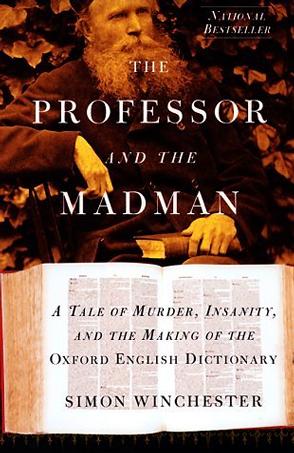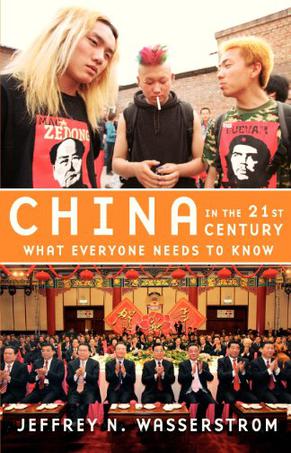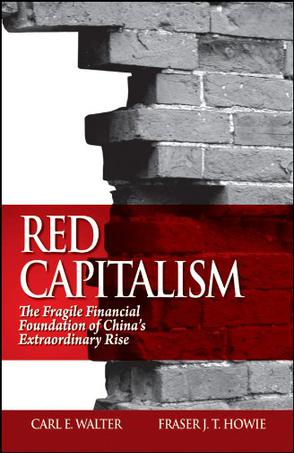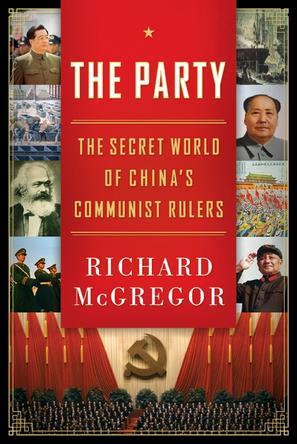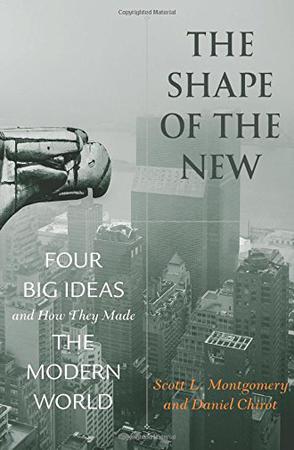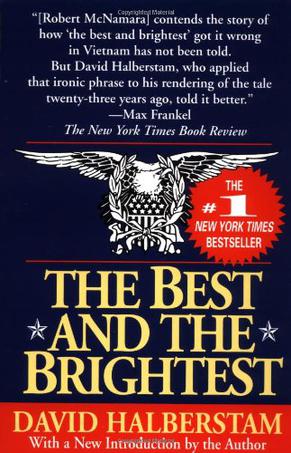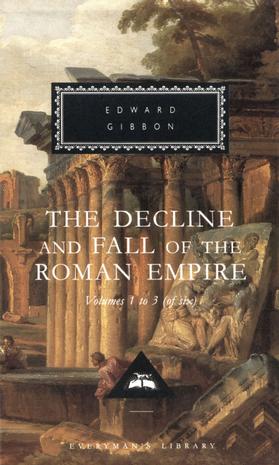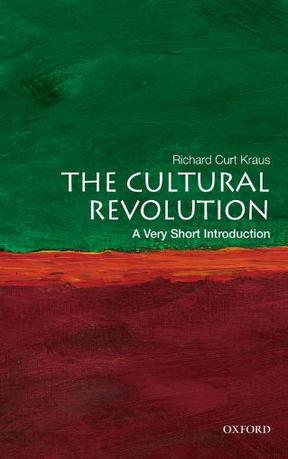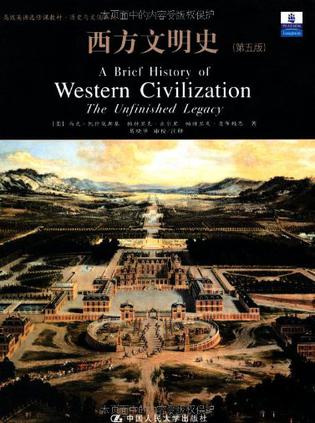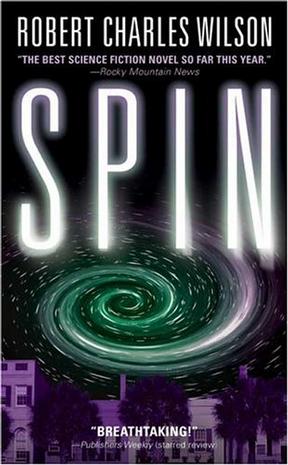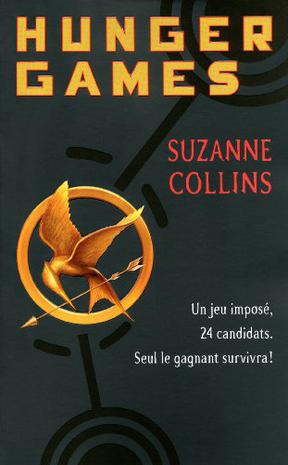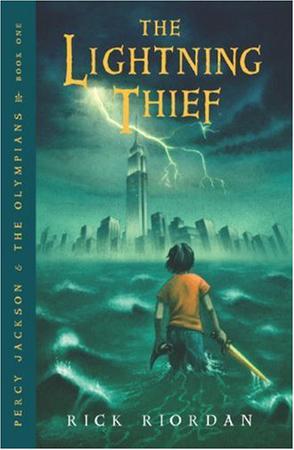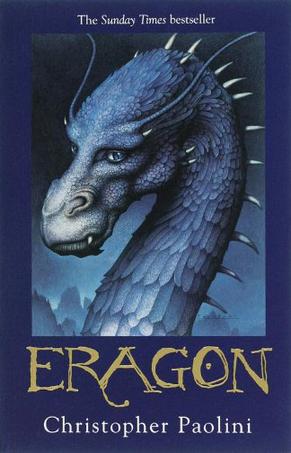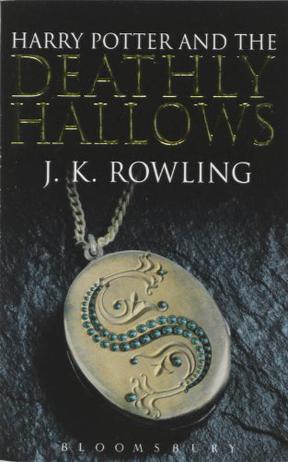欢迎来到相识电子书!
标签:英文
-
6个月学会任何一种外语
《6个月学会任何一种外语》是一本高效学习指南。在当下快节奏和碎片化的时代,要想“6个月”学会一种外语看似是个“神话”,《6个月学会任何一种外语》则为做到这一“神话”从心理学的科学原理出发,结合作者多年的教育实践经验,创造出一套科学高效、方便易学的外语学习的思路和方法,颠覆了传统的外语学习方式。书中具体包括快速学习外语必知的5项核心原则、7个关键行为、7种心理素质,以及6个月学英语的具体行动指南。书中还配有核心方法练习的视频二维码,帮助读者理解概念的同时,通过视频讲解把快速学外语的方法及时掌握,在增加阅读体验的基础上,使您真正意义上在“6个月”找到学会外语的便捷途经,实现这个看似不可能的“神话”。 -
西尔格德心理学
《西尔格德心理学:心理学导论》(第14版)一直被奉为普通心理学教科书的经典之作。Ernest R.Hilgard(西尔格德)教授自1928年便在耶鲁大学和斯坦福大学教授非常受欢迎的心理学导论课程。该书最早是1953年他本人在多年教学经验基础上,独自编写的普通心理学教科书。由于内容丰富、观点全面、着重启发学生思维、特别适合对初学者的教学和自学,该书一出版即广受赞誉,到1962年第三版时,销量已高达415 000册,成为当年最畅销的图书,很,陕就出版了法语。德语、意大利语、西班牙语等多种文字的译本。 为了不断充实心理学界新的研究内容和适应发展中不断出现的新分支领域,西尔格德心理学教科书从1967年修订开始增加新作者,并每隔三四年修订一次。虽然新作者都是各个领域的专家,但为了纪念Hilgard对此书和心理学教学的贡献,始终保留Hilgard为主要作者的地位。由于本书材料新颖、观点全面,我认为它对于心理学界无论哪一个分支的学者,都是一本不可或缺的重要读物。 强力推荐:Atkinson and Hilgard's Introduction to Psychology With Infotrac 英文原版火热发售 -
The World Is Flat
这是一本: 对世界经济及商业最富洞察力和预见性的巨作! 被比尔·盖茨、等全球商业领袖顶礼膜拜的里程碑作品 唯一一位3次获得普利策奖的财经作家 连续64周销量位居亚马逊书店十大畅销书之列 全球销售近1000万册 诺贝尔经济学奖得主斯蒂格利茨推荐 IBM大中华区总裁兼首席执行官周伟焜强烈推荐 IBM全体员工人手一册 《金融时报》与高盛2005年度最佳商业图书 When scholars write the history of the world twenty years from now, and they come to the chapter Y2K to March 2004, what will they say was the most crucial development? The attacks on the World Trade Center on 9/11 and the Iraq war? Or the convergence of technology and events that allowed India, China, and so many other countries to become part of the global supply chain for services and manufacturing, creating an explosion of wealth in the middle classes of the world's two biggest nations, giving them a huge new stake in the success of globalization? And with this flattening of the globe, which requires us to run faster in order to stay in place, has the world gotten too small and too fast for human beings and their political systems to adjust in a stable manner? In this brilliant new book, the award-winning New York Times columnist Thomas Friedman demystifies the brave new world for readers, allowing them to make sense of the often bewildering global scene unfolding before their eyes. With his inimitable ability to translate complex foreign policy and economic issues, Friedman explains how the flattening of the world happened at the dawn of the twenty-first century; what it means to countries, companies, communities, and individuals; and how governments and societies can, and must, adapt. The World Is Flat is the timely and essential update on globalization, its successes and discontents, powerfully illuminated by one of our most respected journalists. : Thomas L. Friedman is not so much a futurist, which he is sometimes called, as a presentist. His aim in The World Is Flat, as in his earlier, influential Lexus and the Olive Tree, is not to give you a speculative preview of the wonders that are sure to come in your lifetime, but rather to get you caught up on the wonders that are already here. The world isn't going to be flat, it is flat, which gives Friedman's breathless narrative much of its urgency, and which also saves it from the Epcot-style polyester sheen that futurists--the optimistic ones at least--are inevitably prey to. What Friedman means by "flat" is "connected": the lowering of trade and political barriers and the exponential technical advances of the digital revolution that have made it possible to do business, or almost anything else, instantaneously with billions of other people across the planet. This in itself should not be news to anyone. But the news that Friedman has to deliver is that just when we stopped paying attention to these developments--when the dot-com bust turned interest away from the business and technology pages and when 9/11 and the Iraq War turned all eyes toward the Middle East--is when they actually began to accelerate. Globalization 3.0, as he calls it, is driven not by major corporations or giant trade organizations like the World Bank, but by individuals: desktop freelancers and innovative startups all over the world (but especially in India and China) who can compete--and win--not just for low-wage manufacturing and information labor but, increasingly, for the highest-end research and design work as well. (He doesn't forget the "mutant supply chains" like Al-Qaeda that let the small act big in more destructive ways.) Friedman has embraced this flat world in his own work, continuing to report on his story after his book's release and releasing an unprecedented hardcover update of the book a year later with 100 pages of revised and expanded material. What's changed in a year? Some of the sections that opened eyes in the first edition--on China and India, for example, and the global supply chain--are largely unaltered. Instead, Friedman has more to say about what he now calls "uploading," the direct-from-the-bottom creation of culture, knowledge, and innovation through blogging, podcasts, and open-source software. And in response to the pleas of many of his readers about how to survive the new flat world, he makes specific recommendations about the technical and creative training he thinks will be required to compete in the "New Middle" class. As before, Friedman tells his story with the catchy slogans and globe-hopping anecdotes that readers of his earlier books and his New York Times columns know well, and he holds to a stern sort of optimism. He wants to tell you how exciting this new world is, but he also wants you to know you're going to be trampled if you don't keep up with it. A year later, one can sense his rising impatience that our popular culture, and our political leaders, are not helping us keep pace. --Tom Nissley Before 9/11, New York Times columnist Friedman was best known as the author of The Lexus and the Olive Tree, one of the major popular accounts of globalization and its discontents. Having devoted most of the last four years of his column to the latter as embodied by the Middle East, Friedman picks up where he left off, saving al-Qaeda et al. for the close. For Friedman, cheap, ubiquitous telecommunications have finally obliterated all impediments to international competition, and the dawning "flat world" is a jungle pitting "lions" and "gazelles," where "economic stability is not going to be a feature" and "the weak will fall farther behind." Rugged, adaptable entrepreneurs, by contrast, will be empowered. The service sector (telemarketing, accounting, computer programming, engineering and scientific research, etc.), will be further outsourced to the English-spoken abroad; manufacturing, meanwhile, will continue to be off-shored to China. As anyone who reads his column knows, Friedman agrees with the transnational business executives who are his main sources that these developments are desirable and unstoppable, and that American workers should be preparing to "create value through leadership" and "sell personality." This is all familiar stuff by now, but the last 100 pages on the economic and political roots of global Islamism are filled with the kind of close reporting and intimate yet accessible analysis that have been hard to come by. Add in Friedman's winning first-person interjections and masterful use of strategic wonksterisms, and this book should end up on the front seats of quite a few Lexuses and SUVs of all stripes. Although it may be catchy, the title of New York Times columnist Friedman's latest book needs explaining. "Flat" here means "level," as in the level playing field on which virtually any nation can now compete, thanks to the explosion of global telecommunications, including the Internet as well as the transfer of information from First World to Third--and back. There's also a leveling of hierarchies within organizations, thanks to the increasing democratization of information from sources such as the Web. Friedman cites 10 forces that have caused this "flattening," including the fall of the Berlin Wall ("We could not think globally about the world when the Berlin Wall was there," said one economist), the emergence of Netscape as an Internet platform, workflow software, open sourcing, outsourcing, the streamlining of the supply chain (witness Wal-Mart), the organization of information on the Internet (Google, Yahoo), and the ubiquity of powerful personal telecommunications devices. Friedman is very thorough at projecting the consequences of these changes, noting the benefits we all share from this hyper-globalization, while realistically addressing, for example, the challenges American workers will face in the coming decades from talented, highly motivated workforces in such countries as India and China. A little more humor might have offset the author's trademark earnestness; still, as he has with other global issues, Friedman brings coherence and a workable plan of action to the fundamental changes our world is experiencing. Alan Moores Adult/High School–This brilliantly paced, articulate, and accessible explanation of today's world is an ideal title for tech-savvy teens. Friedman's thesis is that connectedness by computer is leveling the playing field, giving individuals the ability to collaborate and compete in real time on a global scale. While the author is optimistic about the future, seeing progress in every field from architecture to zoology, he is aware that terrorists are also using computers to attack the very trends that make progress plausible and reasonable. This is a smart and essential read for those who will be expected to live and work in this new global environment –Alan Gropman, National Defense University, Washington, DC Distance has been annihilated. Your X rays are sent to India, your job to China. In a flat world the U.S. must seize every technological advantage and put the "oomph" we gave the moon shot into breaking our oil habit. (Although the writer suspects that he will be sent to the moon before "W." gets the message.) Narrator Oliver Wyman does a superb job. First he's the irrepressible American, then the Indian gentleman, and finally the Chinese whose English is formal but broken. The audiobook technology that enables us to take in so much information while caught in traffic or scrubbing a pan is precisely the sort of handhold Friedman would urge us all to grasp, and with both hands. B.H.C. Winner of AudioFile Earphones Award Friedman, nominally a liberal, has historically taken the middle path and supported laissez-faire capitalism, globalization, and the power of institutions like the International Monetary Fund. Ever optimistic about globalization, he pleases its proponents and disappoints its detractors in The World Is Flat. There’s no doubt that Friedman asks timely questions, even if he sometimes shirks definitive answers. Although he acknowledges terrorism’s global weight, he identifies an even more potent force shaping global economics and politics: the "triple convergence—of new players, on a new playing field, developing new processes … for horizontal collaboration," particularly in China and India. Friedman’s story comes alive as we meet the movers and shakers of Globalization 3.0, eavesdrop on Friedman’s interviews, and witness collaborations in progress. Friedman’s personal journey, if slightly padded, makes for entertaining and accessible reading. Yet critics, even those who support globalization, differed on Friedman’s thesis; India, for example, has not yet become the global superpower he describes; many scholars still describe the "flat world" as a nicer name for "cheap labor." Friedman also less effectively analyzes the effects of Globalization 3.0 than its players, and embraces technological determinism at the expense of thoroughly considering major political factors (like terrorist networks, which he’s previously compared to World War III). No matter your stance on the benefits or pitfalls of globalization, The World Is Flat is an important, thought-provoking book—even if Friedman’s answer to unresolved issues is, "Sort that out." Thomas L. Friedman has won the Pulitzer Prize three times for his work at The New York Times. He is the author of three best-selling books: From Beiruit to Jerusalem (FSG, 1989), winner of the National Book Award for nonfiction and still considered to be the definitive work on the Middle East, The Lexus and the Olive Tree: Understanding Globalization (FSG, 1999), and Longitudes and Attitudes: Exploring the World After September 11 (FSG, 2002). He lives in Bethesda, Maryland, with his family. 《世界是平的》中文版 精装版 《世界是平的》中文版 《世界是平的》中文版 平装版 -
The Professor and the Madman
The Professor and the Madman, masterfully researched and eloquently written, is an extraordinary tale of madness, genius, and the incredible obsessions of two remarkable men that led to the making of the Oxford English Dictionary--and literary history. The compilation of the OED, begun in 1857, was one of the most ambitious projects ever undertaken. As definitions were collected, the overseeing committee, led by Professor James Murray, discovered that one man, Dr. W C. Minor, had submitted more than ten thousand. When the committee insisted on honoring him, a shocking truth came to light: Dr. Minor, an American Civil War veteran, was also an inmate at an asylum for the criminally insane. -
Red Capitalism
For many years now China's economy has seemed unstoppable. A slow appreciation of the renminbi in 2007 brought wave upon wave of liquidity into China and allowed its companies and banks to raise hundreds of billions in dollars via stock market listings. State banks that had started the new century as bankrupt relics of a communist past became the darlings of international investors. Even the collapse of Lehman Brothers in 2008 and the ensuing global financial crisis seemed to have little impact on China as the government quickly responded with a huge stimulus package. But the Lehman collapse was a dramatic wake up call to the Chinese leadership. This model of bank and capital market reform had been studiously emulated for more than a decade and had brought great benefits to China. But now, although they believed it to be bankrupt, the Chinese government were bereft of new ideas. In the face of the global financial crisis the government returned to what it knows best, massive state intervention via the banking system. Ten years of banking and capital market reforms were dead. In Red Capitalism, Carl Walter and Fraser Howie detail how the Chinese government reformed and modeled its financial system in the 30 years since it began its policy of engagement with the west. Instead of a stable series of policies producing steady growth, China's financial sector has boomed and gone bust with regularity in each decade. The latest decade is little different. Chinese banks have become objects of political struggle while they totter under balance sheets bloated by the excessive state-directed lending and bond issuance of 2009. Looking forward, the government's response to the global financial crisis has created a banking system the stability of which can be maintained only behind the walls of a non-convertible currency, a myriad of off-balance sheet arrangements with non-public state entities and the strong support of its best borrowers--the politically potent National Champions--who are the greatest beneficiaries of the financial status quo. China's financial system is not a model for the west and, indeed, is not a sustainable arrangement for China itself as it seeks increasingly to assert its influence internationally. This is not a story of impending collapse, but of frustrated reforms that suggests that any full opening and meaningful reform of the financial sector is not, indeed cannot be, on the government's agenda anytime soon. -
The Party
An eye-opening investigation into China's Communist Party and its integral role in the country's rise as a global superpower and rival of the United States China's political and economic growth in the past three decades is one of astonishing, epochal dimensions. The country has undergone a remarkable transformation on a scale similar to that of the Industrial Revolution in the West. The most remarkable part of this transformation, however, has been left largely untold—the central role of the Chinese Communist Party. As an organization alone, the Party is a phenomenon of unique scale and power. Its membership surpasses seventy-three million, and it does more than just rule a country. The Party not only has a grip on every aspect of government, from the largest, richest cities to the smallest far-flung villages in Tibet and Xinjiang, it also has a hold on all official religions, the media, and the military. The Party presides over large, wealthy state-owned businesses, and it exercises control over the selection of senior executives of all government companies, many of which are in the top tier of the Fortune 500 list. In The Party, Richard McGregor delves deeply into China's inner sanctum for the first time, showing how the Communist Party controls the government, courts, media, and military, and how it keeps all corruption accusations against its members in-house. The Party's decisions have a global impact, yet the CPC remains a deeply secretive body, hostile to the law, unaccountable to anyone or anything other than its own internal tribunals. It is the world's only geopolitical rival of the United States, and is steadfastly poised to think the worst of the West. In this provocative and illuminating account, Richard McGregor offers a captivating portrait of China's Communist Party, its grip on power and control over China, and its future. -
18世纪英国
插图目录 地图目录 第一章 革命及其反响 第二章 罗宾政府的兴起 第三章 工业和赋闲 第四章 英国中产阶级的形成 第五章 不同政见的斗争 第六章 叛乱和改革 第七章 结束语 年表 历任首相名录1721-1789年 译后记 -
The Best and the Brightest
A rich, entertaining, and profound reading experience. -- The New York Times "[The] most comprehensive saga of how America became involved in Vietnam. It is also the Iliad of the American empire and the Odyssey of this nation's search for its idealistic soul. THE BEST AND THE BRIGHTEST is almost like watching an Alfred Hitchcock thriller." -- The Boston Globe "Deeply moving . . . We cannot help but feel the compelling power of this narrative . . . . Dramatic and tragic, a chain of events overwhelming in their force, a distant war embodying illusions and myths, terror and violence, confusions and courage, blindness, pride, and arrogance." -- Los Angeles Times "Most impressive, superb -- perceptive, literary, multidimensional." -- The New York Times Book Review "A story which every American should read." -- St. Louis Post-Dispatch -
The Decline and Fall of the Roman Empire
Volumes 1, 2, and 3 of the Bury Text, in a boxed set. Introduction by Hugh Trevor-Roper -
西方文明史
《西方文明史(第5版)》既紧紧把握了政治发展的线索,同时又兼顾了经济、文化等诸多领域,并运用“新史学”的方法,将底层大众的日常社会生活也囊括其中,力求多层次、多角度地揭示西方文明起源、发展、演进、更新的漫长历程和整体图景。在叙述和阐释西方文明历史的过程中,作者将大多数精力“一直聚焦在拓展出一种对西方文明的可靠的和易读的叙述上”,而并非要将之写成“一部百科全书”。因此,凡是与这一学术主旨不相关的庞杂内容一概不予叙述,而那些被长期忽略了的“普通男女的历史”则被纳入到叙事之中。此外,作者还从文明的“亲缘”关系出发,将斯拉夫文明作为西方文明的组成部分而不是边缘地带来加以叙述。 -
Spin
One night in October when he was ten years old, Tyler Dupree stood in his back yard and watched the stars go out. They all flared into brilliance at once, then disappeared, replaced by a flat, empty black barrier. He and his best friends, Jason and Diane Lawton, had seen what became known as the Big Blackout. It would shape their lives. The effect is worldwide. The sun is now a featureless disk--a heat source, rather than an astronomical object. The moon is gone, but tides remain. Not only have the world's artificial satellites fallen out of orbit, their recovered remains are pitted and aged, as though they'd been in space far longer than their known lifespans. As Tyler, Jason, and Diane grow up, a space probe reveals a bizarre truth: The barrier is artificial, generated by huge alien artifacts. Time is passing faster outside the barrier than inside--more than a hundred million years per year on Earth. At this rate, the death throes of the sun are only about forty years in our future. Jason, now a promising young scientist, devotes his life to working against this slow-moving apocalypse. Diane throws herself into hedonism, marrying a sinister cult leader who's forged a new religion out of the fears of the masses. Earth sends terraforming machines to Mars to let the onrush of time do its work, turning the planet green. Next they send humans...and immediately get back an emissary with thousands of years of stories to tell about the settling of Mars. Then Earth's probes reveal that an identical barrier has appeared around Mars. Jason, desperate, seeds near space with self-replicating machines that will scatter copies of themselves outward from the sun--and report back on what they find. Life on Earth is about to get much, much stranger. -
The Lightning Thief
Book Description Percy Jackson is a good kid, but he cant seem to focus on his schoolwork or control his temper. And lately, being away at boarding school is only getting worsePercy could have sworn his pre-algebra teacher turned into a monster and tried to kill him. Percys mom decides its time that he knew the truth about where he came from. She sends Percy to Camp Half-Blood, a summer camp for demigods (on Long Island), where he learns that the father he never knew is Poseidon, God of the Sea. Soon a mystery unfolds and together with his friendsone a satyr and the other the demigod daughter of AthenaPercy sets out on a quest across the United States to reach the gates of the Underworld (located in a recording studio in Hollywood) and prevent a catastrophic war between the gods. But to succeed on his quest, Percy will have to unravel a treachery more powerful than the gods themselves. From School Library Journal Grade 5-9–An adventure-quest with a hip edge. At first glance, Perseus Jackson seems like a loser (readers meet him at a boarding school for troubled youth), but he's really the son of Poseidon and a mortal woman. As he discovers his heritage, he also loses that mother and falls into mortal danger. The gods (still very active in the 21st-century world) are about to go to war over a lost thunderbolt, so Percy and sidekicks Grover (a young satyr) and Annabeth (daughter of Athena) set out to retrieve it. Many close calls and monster-attacks later, they enter Hades's realm (via L.A.). A virtuoso description of the Underworld is matched by a later account of Olympus (hovering 600 floors above Manhattan). There's lots of zippy review of Greek myth and legend, and characters like Medusa, Procrustes, Charon, and the Eumenides get updates. Some of the Labors of Heracles or Odysseus's adventures are recycled, but nothing seems stale, and the breakneck pace keeps the action from being too predictable. Percy is an ADHD, wise-cracking, first-person narrator. Naturally, his real quest is for his own identity. Along the way, such topics as family, trust, war, the environment, dreams, and perceptions are raised. There is subtle social critique for sophisticated readers who can see it. Although the novel ends with a satisfying conclusion (and at least one surprise), it is clear that the story isn't over. The 12-year-old has matured and is ready for another quest, and the villain is at large. Readers will be eager to follow the young protagonist's next move. –Patricia D. Lothrop, St. George's School, Newport, RI From Booklist Gr. 6-9. The escapades of the Greek gods and heroes get a fresh spin in the first book in the Percy Jackson and the Olympians series, about a contemporary 12-year-old New Yorker who learns he's a demigod. Perseus, aka Percy Jackson, thinks he has big problems. His father left before he was born, he's been kicked out of six schools in six years, he's dyslexic, and he has ADHD. What a surprise when he finds out that that's only the tip of the iceberg: he vaporizes his pre-algebra teacher, learns his best friend is a satyr, and is almost killed by a minotaur before his mother manages to get him to the safety of Camp Half-Blood--where he discovers that Poseidon is his father. But that's a problem, too. Poseidon has been accused of stealing Zeus' lightning bolt, and unless Percy can return the bolt, humankind is doomed. Riordan's fast-paced adventure is fresh, dangerous, and funny. Percy is an appealing, but reluctant hero, the modernized gods are hilarious, and the parallels to Harry Potter are frequent and obvious. Because Riordan is faithful to the original myths, librarians should be prepared for a rush of readers wanting the classic stories. Chris Sherman Book Dimension length: (cm)21.3 width:(cm)14.5 -
Eragon
When Eragon finds a polished stone in the forest, he thinks it is the lucky discovery of a poor farm boy; perhaps it will buy his family meat for the winter. But when the stone brings a dragon hatchling, Eragon soon realizes he has stumbled upon a legacy nearly as old as the Empire itself. Overnight his simple life is shattered and he is thrust into a perilous new world of destiny, magic and power. With only an ancient sword and the advice of an old storyteller for guidance, Eragon and the fledgling dragon must navigate the dangerous terrain and dark enemies of an Empire ruled by a king whose evil knows no bounds. Can Eragon take up the mantle of the legendary Dragon Riders? The fate of the Empire may rest in his hands... -
Harry Potter and the Deathly Hallows
'His hand closed automatically around the fake Horcrux, but in spite of everything, in spite of the dark and twisting path he saw stretching ahead for himself, in spite of the final meeting with Voldemort he knew must come, whether in a month, in a year, or in ten, he felt his heart lift at the thought that there was still one last golden day of peace left to enjoy with Ron and Hermione.' With these words "Harry Potter and the Half-Blood Prince" draws to a close. And here, in this seventh and final book, Harry discovers what fate truly has in store for him as he inexorably makes his way to that final meeting with Voldemort. In this thrilling climax to the phenomenally bestselling series, J.K. Rowling reveals all to her eagerly waiting readers. -
Magic Tree House #7
Jack and Annie are whisked all the way back to the Ice Age in this compelling Magic Tree House time-travel adventure where they meet woolly mammoths, cave people...and fierce sabertooth tigers! -
Magic Tree House #4
Illus. in black-and-white. Jack and Annie are in deep trouble when the Magic Tree House whisks them back to the days of desert islands, secret maps, hidden gold--and ruthless pirates! Will Jack and Annie discover a buried treasure? Will they find out the identity of the mysterious M? Or will they walk the plank?
热门标签
下载排行榜
- 1 梦的解析:最佳译本
- 2 李鸿章全传
- 3 淡定的智慧
- 4 心理操控术
- 5 哈佛口才课
- 6 俗世奇人
- 7 日瓦戈医生
- 8 笑死你的逻辑学
- 9 历史老师没教过的历史
- 10 1分钟和陌生人成为朋友




